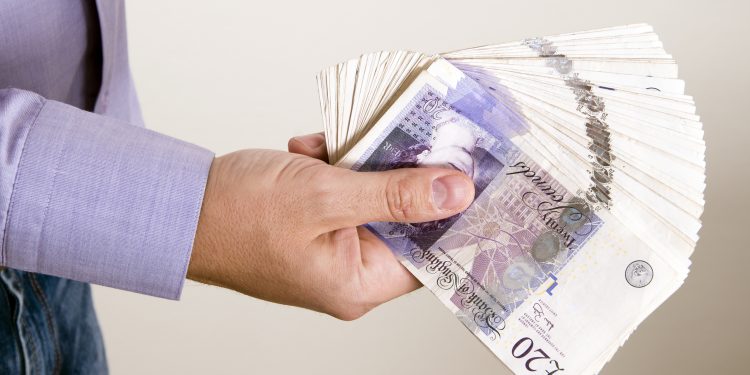It always feels nice to have a pocket full of British currency in my wallet. It is more majestic than the U.S. dollar, and with Queen Elizabeth’s royal image, it just seems extraordinary even if it is made on polymer rather than paper.
The BBC reports today that Britons are keeping those notes in their wallets longer; debit and credit cards are displacing cash aggressively.
- Cash accounted for just over £1 in every £5 spent with UK shops.
- Debit cards were the most popular, but falling cash use pushed notes and coins down to third place, the British Retail Consortium (BRC) said.
- Credit and charge cards accounted for £82bn, or 22%, of retail sales last year – outstripping cash (£78bn) for the first time, according to the BRC, which has been running its payments survey for 20 years. Spending on debit cards totalled £216bn.
As to why I’m glad I didn’t say this:
- Andrew Cregan, policy adviser at the BRC, said that falling cash use and growth of online shopping were both factors in the shift.
- He echoed concerns that any move to a totally cashless society could leave millions of people in the lurch. Without cash, it would be harder to leave tips or give to the homeless.
- Vulnerable people, such as those with physical or mental health problems, who find it hard to use digital services, people who have been bankrupt, or those who use cash as a lifeline when in difficult or abusive relationships, could also be severely affected.
As to carrying U.S. dollars, I’m a credit guy and prefer my cards. Somewhere in my desk, I have a change jar and know that there are three bills in my wallet. I don’t leave home without my favorite American Express, Discover, Mastercard, and Visa.
The article in BBC leads in with the topic of record-low-cash usage but ends with a discourse on merchant fees. A bit sneaky for the British Retail Consortium, but the numbers are notable.
- The BRC argued that rising costs faced by retailers to process card payments could push up prices.
- The average cost faced by a retailer for a debit card transaction was 6.23p, rising to 18.19p for credit or charge cards, compared with 1.66p for cash, the BRC said.
- Mr Cregan said about a third of the cost on cards was the so-called scheme fee charged by card companies such as Visa and Mastercard, and that cost had been rising sharply.
- “Without action [from government], we will see businesses put under further pressure and it will be consumers who are forced to pay the price,”
Just the same, it is nice to have a few bucks in your pocket, either way. Dollars, Euros, or Pounds.
Overview by Brian Riley, Director, Credit Advisory Service at Mercator Advisory Group









